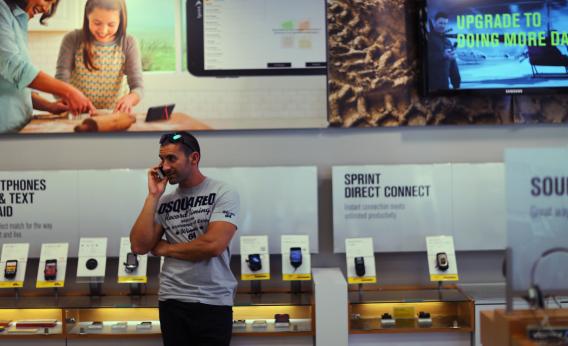Revelations about the scope of the National Security Agency’s spying just keep on coming. Now, new reports say the top three major U.S. phone networks have been handing over masses of phone records as part of a sweeping secret program—and the data has in some cases been shared with spies in the United Kingdom.
On Wednesday a classified court order was revealed showing that a Verizon business subsidiary had been ordered to hand over millions of records of phone calls made and received by all customers. The disclosure has prompted a backlash from civil liberties groups, but lawmakers have tried to play it down by saying that the data collection is lawful and has been going on for at least seven years. It separately emerged that the NSA is operating a vast Internet monitoring program calling PRISM, reportedly gaining access to the internal servers of the world’s largest tech companies—including Google, Microsoft, and Facebook—to spy on communications and record troves of other private data.
Now, in yet another startling new disclosure, the Wall Street Journal reported Friday that Verizon is not the only company whose phone records the NSA has access to. The agency is also receiving the same data from Sprint Nextel and AT&T and has additionally been cataloguing credit-card transactions to monitor Americans’ spending habits. The Journal, citing “people familiar with the NSA’s operations,” noted that every time the majority of Americans makes a call, the “NSA gets a record of the location, the number called, the time of the call and the length of the conversation.” The program, the newspaper reported, has been approved by all three branches of government. It does not entail the actual recording of call content, but rather metadata that can be used to see who is calling whom, where, and when. The Daily Beast separately reported that the phone records have been shared with the NSA’s British counterpart, Government Communications Headquarters, “in a few discreet cases.”
In a drastic move following the series of disclosures, James Clapper, director of national intelligence, released a statement Thursday in an attempt to address concerns about the scope of the NSA’s spying. In an apparently unprecedented decision, Clapper declassified information about a section of the Foreign Intelligence Surveillance Act in order to address specific details about the secret surveillance. He admitted the data collection was “broad in scope” but said it was “lawful, subject to stringent restrictions,” and necessary to protect against terrorist threats. Clapper added that the U.S. intelligence community was committed to “respecting the civil liberties and privacy of all American citizens”—which won’t do much to reassure the billions of people around the world who have read about PRISM’s capabilities but are not American citizens.
